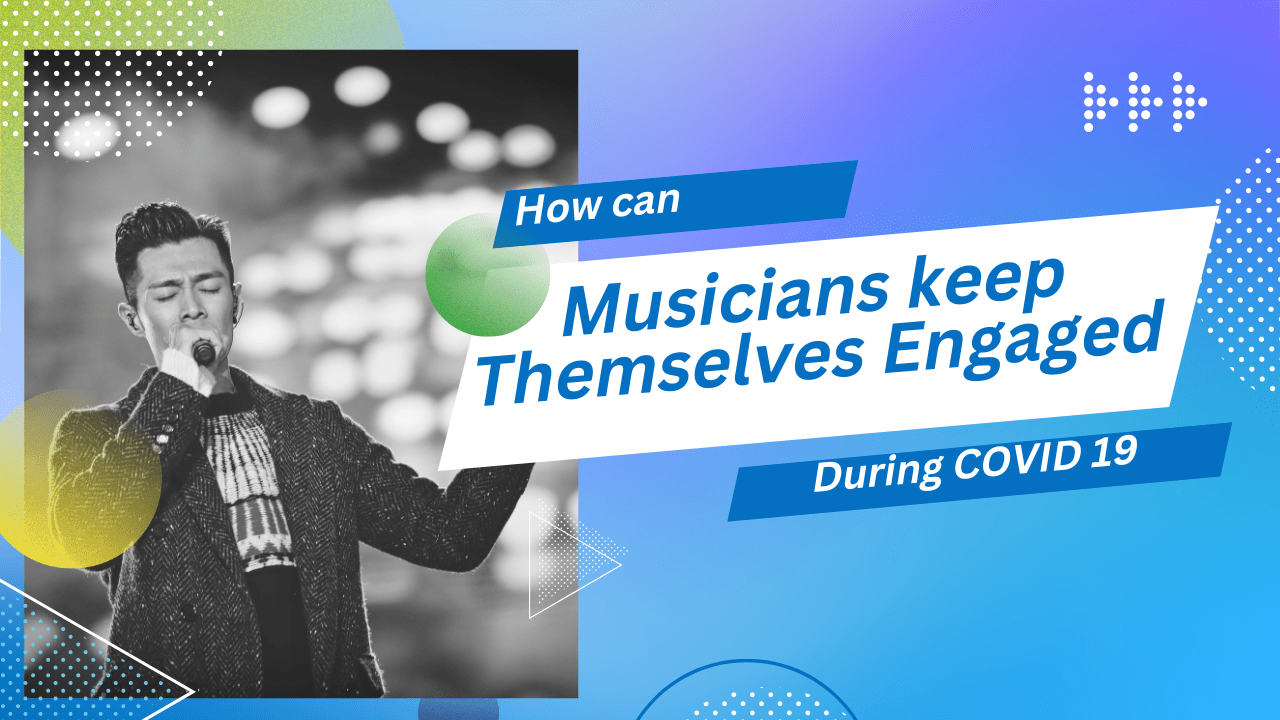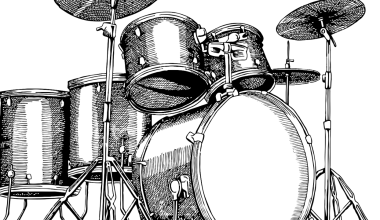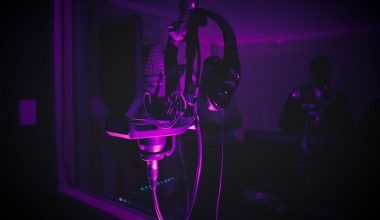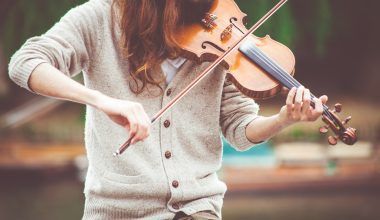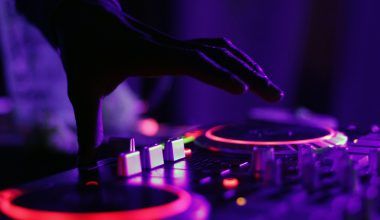The COVID-19 pandemic has changed the world in many ways. The music industry, in particular, has faced serious challenges. Live performances, tours, and studio sessions have all been put on hold. For musicians, who rely on these activities, the pandemic has been especially tough. But despite these difficulties, this period also offers “How Can Musicians Keep Themselves Engaged During COVID-19” to stay engaged, creative, and connected with fans. While the situation is far from perfect, musicians can use this time to learn, grow, and stay productive.
Embrace Virtual Concerts and Performances
Virtual concerts have become a lifeline for musicians during the pandemic. With venues closed, artists turned to digital platforms like YouTube, Facebook Live, and Instagram Live to keep performing. Hosting a virtual concert lets musicians reach a global audience from home.
Planning is key for a successful virtual concert. High-quality audio and visuals are crucial since viewers miss the live atmosphere of a physical venue. Musicians should invest in good microphones, cameras, and lighting. Interaction with the audience, like live chats or shout-outs, helps recreate the connection of a live show.
Virtual concerts also offer new revenue opportunities. Musicians can monetize these events through ticket sales, donations, or exclusive content. Platforms like Patreon allow fans to support their favorite artists directly. Musicians can also collaborate with other artists online to attract larger audiences.
Collaborate Online with Other Artists
Collaboration has always been vital in the music industry. The pandemic hasn’t changed that. In fact, it has led to new ways for artists to work together. Online collaboration tools like Soundtrap, Splice, and Google Drive make it easy for musicians to share ideas, tracks, and lyrics.
These platforms allow musicians to work together, even when they’re miles apart. This flexibility is useful, especially when artists are in different time zones. Online collaboration also lets musicians experiment with new genres and styles. Working with artists from different backgrounds can lead to unique and innovative music.
Virtual songwriting camps and workshops have also become popular. These events bring together songwriters, producers, and musicians to create new music. They provide structure and help musicians stay motivated. Plus, they offer a chance to network with other professionals.
Develop New Skills and Techniques
The pandemic has given musicians extra time. They can use this time to learn new skills and improve existing ones. Whether it’s mastering a new instrument, improving vocals, or learning production skills, now is the perfect time for growth.
Online learning platforms like Coursera, MasterClass, and YouTube offer courses on various topics. Musicians can learn music theory, audio engineering, and more. Many of these courses are taught by industry professionals.
Musicians can also benefit from free content online. Tutorials, webinars, and live streams offer valuable tips. Staying curious and open to learning can make musicians more versatile.
Learning new skills doesn’t have to be limited to music. Musicians can explore related fields like video production or marketing. For example, learning video editing can help musicians create high-quality music videos. Understanding social media marketing can boost their online presence.
Engage with Fans on Social Media
Social media has always been important for musicians. But during the pandemic, it has become even more crucial. With live events on hold, social media is one of the best ways for musicians to connect with fans.
Platforms like Instagram, Twitter, TikTok, and Facebook offer many ways to engage with fans. Musicians can share updates, host live sessions, and show behind-the-scenes content. These platforms let musicians stay connected and maintain a sense of community.
Social media also allows for interactive experiences. Musicians can host live Q&A sessions or run polls. These activities make fans feel involved and valued. They also help build a loyal fanbase.
Besides traditional platforms, musicians can use niche platforms like Patreon. Patreon lets musicians offer exclusive content to subscribers. This creates a dedicated community of supporters. Discord is another platform that helps musicians connect with fans in a private server.
Release New Music Digitally
Despite the challenges, musicians can still release new music. Digital platforms like Spotify, Apple Music, and YouTube make this possible. Releasing music digitally has many benefits. It allows musicians to reach a global audience instantly.
Musicians can release music in smaller, more frequent installments. Instead of a full album, they can drop singles or EPs. This approach keeps fans engaged and gives musicians more opportunities to promote their work.
Digital music distribution has become more accessible. Platforms like DistroKid and TuneCore allow independent musicians to distribute their music to major streaming services. By taking control of their distribution, musicians can ensure their music reaches as many listeners as possible.
Creating visual content, like music videos or lyric videos, can enhance digital releases. These visuals add another layer of engagement. Platforms like YouTube are ideal for sharing this content.
Host Virtual Meet-and-Greets
In-person meet-and-greets are off the table during the pandemic. But musicians can still connect with fans through virtual meet-and-greets. These sessions can be held on platforms like Zoom or Google Meet.
Virtual meet-and-greets offer fans a unique experience. They can interact with the musician in real-time, ask questions, or just chat. For musicians, these sessions help maintain a personal connection with their audience.
Musicians can monetize virtual meet-and-greets. They can offer these sessions as part of a bundle with merchandise or album pre-orders. Fans who purchase these bundles could gain exclusive access to the meet-and-greet.
Virtual meet-and-greets can also be part of a larger event, like a virtual listening party. These events create excitement around new releases, similar to a live concert.
Work on Songwriting and Composition
The pandemic has created an environment that encourages creativity. With fewer distractions, musicians can focus on songwriting and composition.
Songwriting can be a way to process emotions and experiences. The pandemic has brought many new challenges, and these can be channeled into music. Musicians can experiment with different songwriting techniques or styles.
Musicians can also work on composition and arrangement. This is a good time to try new instruments, structures, or production techniques. The result can be more complex and layered music.
Documenting the songwriting process can also keep fans engaged. Musicians can share their journey on social media, showing how a song is made. This gives fans a deeper connection to the music.
Explore New Revenue Streams
The pandemic has impacted traditional revenue streams like live performances. Musicians need to find new ways to earn income. One option is offering online music lessons. Platforms like Zoom and Skype make it easy to teach music remotely. Musicians can offer one-on-one sessions, group classes, or pre-recorded courses.
Creating a Patreon page is another way to generate income. Musicians can offer exclusive content to subscribers, like unreleased tracks or behind-the-scenes videos. Patreon allows musicians to build a steady income while maintaining creative control.
Sync licensing is another option. This involves licensing music for use in TV shows, movies, video games, and commercials. Platforms like Songtradr connect musicians with licensing opportunities.
Musicians can also explore content creation outside of music. Podcasting is one option. Musicians can create podcasts to discuss their music, interview other artists, or talk about various topics. Collaborating with brands as influencers is another possibility.
Maintain Physical and Mental Well-being
Staying healthy during the pandemic is crucial. The stress and isolation can take a toll on both physical and mental health. Musicians need to prioritize their well-being.
Regular exercise is important for maintaining physical health. Whether it’s a daily walk, yoga, or a home workout, staying active can reduce stress. Many fitness apps and online classes are available to guide musicians through exercises.
Mental well-being is just as important. The pandemic has brought uncertainty and loneliness. Musicians can benefit from mindfulness practices like meditation or journaling. Staying connected with loved ones through video calls or messages can also help.
Balancing work and relaxation is key. Musicians should take time to unwind and enjoy non-music-related activities. This balance can prevent burnout and keep creativity flowing.
Plan for the Future
The pandemic offers musicians a chance to reflect and plan for the future. With fewer immediate demands, musicians can consider their long-term goals and career path.
Setting new goals is a good starting point. Musicians can use this time to identify what they want to achieve, whether it’s releasing an album, touring, or growing their audience. These goals should be specific and achievable.
Developing a marketing strategy is also important. With the rise of digital platforms, musicians need to have a strong online presence. Musicians can research and plan their marketing efforts, from social media to website optimization.
Future planning also means staying informed about trends in the music industry. The pandemic has accelerated trends like streaming and virtual reality concerts. By staying updated, musicians can take advantage of new opportunities.
Finally, musicians can plan for future releases and tours. While it’s hard to predict when live events will return, having a plan in place can help musicians stay prepared.
Record and Release a Live Album
Live performances are special for both musicians and fans. While traditional live concerts are not possible, musicians can still record and release a live album. This provides fans with a new listening experience.
Musicians can record live performances from home or a small studio. The goal is to capture the energy and spontaneity of a live show. Releasing a live album can remind fans of the connection they share with the artist.
To enhance the experience, musicians can pair the live album with video recordings. These videos can be shared on platforms like YouTube, giving fans a visual element.
Participate in Online Music Challenges
Online music challenges have become popular during the pandemic. These challenges encourage musicians to create and share music based on specific themes or prompts.
Participating in online challenges helps musicians stay creative. It also provides a sense of community as other participants engage with the content. Popular challenges include #QuarantineSessions and #SongwritingChallenge.
Musicians can also create their own challenges. This engages their audience and builds a community around their music.
Create a Personal Studio at Home
Having a personal studio at home has become more important during the pandemic. For musicians who haven’t invested in a home studio, now is the time to do so. A home studio allows musicians to record, produce, and mix their music independently.
Setting up a home studio doesn’t require a large budget. Musicians can start with basic equipment like a microphone, audio interface, and digital audio workstation (DAW). Over time, they can add more tools as needed.
A home studio offers flexibility, creative control, and cost savings. Musicians can work on their music whenever they want, without being limited by studio schedules.
Engage in Community Initiatives
Community engagement is more important than ever during the pandemic. Musicians can use their platform to support relief efforts, local businesses, or important causes. This not only helps those in need but also strengthens the musician’s connection with their audience.
Musicians can participate in charity events or benefit concerts. These events raise funds for causes like COVID-19 relief or mental health support. Musicians can also promote local businesses or organize fundraisers.
Supporting fellow musicians is another way to engage with the community. Promoting other artists’ work or collaborating on projects can foster solidarity in the industry.
Document the Creative Process
Fans love to see the creative process behind their favorite music. During the pandemic, musicians can document their journey and share it with their audience. This can include behind-the-scenes videos, social media updates, or blog posts.
Documenting the creative process keeps fans engaged and gives them a deeper connection to the music. Musicians can share their progress on platforms like YouTube or Instagram. They can also write blog posts or newsletters to provide more in-depth insights.
Sharing the creative process can also be helpful for other musicians. By sharing their experiences and tips, musicians can contribute to the broader music community.
Conclusion
The COVID-19 pandemic has brought many challenges to the music industry, but it has also opened up new opportunities for creativity and connection. By embracing digital platforms, exploring new revenue streams, and focusing on personal growth, musicians can stay engaged and productive during these uncertain times. The strategies discussed in this blog offer practical ways for musicians to navigate the pandemic while continuing to create and share their art. As the world slowly recovers, these practices will help musicians emerge stronger and more resilient.
For further reading, explore these related articles:
- Ideas to Keep Musicians Engaged During Coronavirus
- 3 Common Mistakes Artists Make While Recording At Home
- How Being In a Band Changes Your Life
For additional resources on music marketing and distribution, visit Deliver My Tune.
